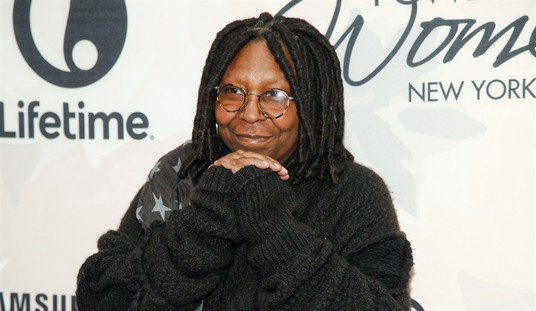Glenn Greenwald at Salon is aghast at how Keith Olbermann could turn on a dime on the subject of FISA wiretaps and telecomm company amnesties in connection with counterterror wiretaps simply because Barack Obama changed his position. How could he? The logical error in Greenwald’s thinking is to assume that Olbermann had a position. Greenwald laments:
What’s much more notable is Olbermann’s full-scale reversal on how he talks about these measures now that Obama — rather than George Bush — supports them. On an almost nightly basis, Olbermann mocks Congressional Democrats as being weak and complicit for failing to stand up to Bush lawbreaking; now that Obama does it, it’s proof that Obama won’t “cower.” Grave warning on Olbermann’s show that telecom amnesty and FISA revisions were hallmarks of Bush Fascism instantaneously transformed into a celebration that Obama, by supporting the same things, was leading a courageous, centrist crusade in defense of our Constitution. Is that really what anyone wants — transferring blind devotion from George Bush to Barack Obama? Are we hoping for a Fox News for Obama, that glorifies everything he says and whitewashes everything he does?
Obama’s candidacy is partly founded on a cult of personality. He is the Face, the One we’ve been waiting for. A voter who simply wanted to endorse a set of policies could have voted for John Edwards or Hillary Clinton as well as Barack Obama. Obama’s distinctive competence is that he is Barack Obama. Without that singular qualification he would simply be one in a long line of standard bearers for a set of liberal prescriptions that are forty years old. This circumstance also explains why attacks on BHO tend to take the form of impugning his personality.
To a certain extent the candidacy of Barack Obama represents a revival of the idea of an aristocracy. The word itself comes from the Greek aristokratía which means “the rule of the best”. This is in contrast to the idea of a democracy, in which the officeholders themselves are nothing special. In fact, there is the subtle assumption that leaders in a democracy will frequently be mediocrities if not outright rogues. What is important in a democracy is that officeholders carry out the will of the people; that is to say, popular policy.
Glenn Reynolds points out that if we had “‘a Supreme Court that looks like America,’ Heller would have been 7-2, … or at least 6-3,” citing surveys which showed that “a clear majority of the U.S. public — 73% — believes the Second Amendment to the Constitution guarantees the rights of Americans to own guns. And almost 7 out of 10 Americans are opposed to a law that would make the possession of a handgun illegal, except by the police.” But as Greenwald points out, in an Olbermann world the relevant metric isn’t ‘what do the people want’, or even ‘what is right but “what does Obama think?” It’s a concept that is instantly familiar within the context of an aristocracy, where by definition, what matters is the King’s will.
Great Britain, which entered the 20th century with its aristocracy in working condition found that the aristocrats were not necessarily wiser than the common man. One of the major casualties of the Great War was the consensus that the “Public School boys knew best”. But because it was customary from the Public School boys to lead from the front, no one learned better how fallible their judgments were than the Golden Youth of Britain itself. The Public School boys buried themselves in the mud of the Western Front, sometimes taking a soccer ball “over the top”. Interestingly, while other societies had moved away from the idea of a class of naturally superior persons, the concept was enjoying a revival in America. David Halberstam’s, book “The Best and the Brightest” recounted the blunders of “President John F. Kennedy’s ‘whiz kids’ — leaders of industry and academia brought into his administration — whom Halberstam characterized as arrogantly insisting on ‘brilliant policies that defied common sense’ in Vietnam, often against the advice of career US Department of State employees.” And while I wonder whether the career State Department employees would truly have done better, even the “Best and the Brightest” rooted their legitimacy in the superiority of their ideas and in the brilliance of their policies. They never reached the point, which every cult of personality naturally achieves, of arguing from Divine Right.
C. S. Lewis argued that the extinction of the individual and its replacement by nothingness is the ultimate peril. One of his most satanic characters, Edward Rolles Weston is filled, not by a magnificent malice, but by an arbitrary, banal pettiness. Describing Weston, Lewis writes “For temptation, for blasphemy, for a whole battery of horrors, he [the protagonist] was in some sort prepared; but hardly for this petty, indefatigable nagging as of a nasty little boy at a preparatory school. Indeed no imagined horror could have surpassed the sense which grew within him as the slow hours passed, that this creature was, by all human standards, inside out – its heart on the surface and its shallowness at the heart. On the surface, great designs and an antagonism to Heaven which involved the fate of worlds: but deep within, when every veil had been pierced, was there, after all, nothing but a black puerility, an aimless empty spitefulness content to sate itself with the tiniest cruelties, as love does not disdain the smallest kindness.” I think Greenwald, in recoiling from personalities with apparently no will of their own, would recognize the symptoms well.
Contribute to the Belmont Club.










Join the conversation as a VIP Member